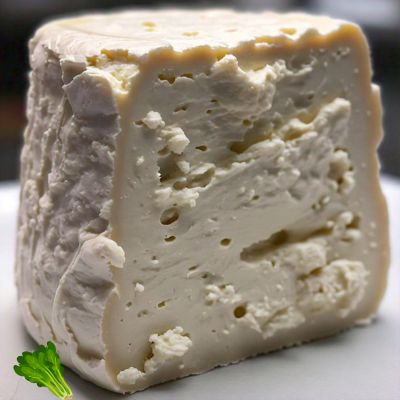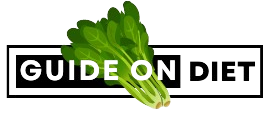Ricotta cheese is a soft, creamy cheese known for its versatility and mild flavor, used in everything from Italian pasta dishes to desserts. Originating from Italy, ricotta is traditionally made by reheating whey, a byproduct of the cheesemaking process. This leftover whey, which is the liquid remaining after curds are separated, is often combined with some milk and an acid like lemon juice or vinegar to create the fluffy, delicate curds of ricotta. While it’s commonly made with cow’s milk, ricotta can also come from sheep, goat or water buffalo milk, each lending a slightly different flavor profile to the cheese.

How Ricotta Cheese Is Made
In traditional cheesemaking, ricotta is made by heating whey with a small amount of milk and adding an acidic ingredient. This process causes the proteins in the whey to coagulate, forming soft curds. Once these curds grow in size, they are separated from the liquid whey and strained, creating the cheese’s characteristic creamy texture. In commercial settings, however, ricotta is often made directly from milk, bypassing the need for leftover whey and it’s treated similarly to produce the desired consistency and flavor.
Nutritional Profile of Ricotta Cheese
Ricotta cheese is rich in several key nutrients, making it not only delicious but also nutritious. A half-cup serving (approximately 129 grams) of whole milk ricotta provides approximately:
- Calories: 204
- Fat: 14.2g (of which 8g is saturated)
- Protein: 10.1g
- Carbohydrates: 8.9g
- Calcium: 289mg
- Vitamin B12: 1.1mcg
- Vitamin A: 148.8mcg
With a decent amount of protein and essential vitamins like calcium, vitamin B12 and vitamin A, ricotta can be a healthy addition to your diet. It’s also a low-glycemic food, with a glycemic index of 27, making it a good choice for those watching their blood sugar levels. Lower-fat versions are also available for those mindful of fat intake.
Carbohydrates
Ricotta cheese contains around 8.9 grams of carbohydrates per half-cup serving, with almost no sugars or fiber, which makes it a suitable option for those watching their sugar intake. Its low glycemic index suggests that it won’t cause rapid blood sugar spikes, making it a diabetic-friendly choice.
Fats
Whole milk ricotta contains about 14.2 grams of fat per serving, 8 grams of which are saturated. While saturated fats have long been linked to heart disease, recent research suggests that full-fat dairy might not be as harmful as once thought. It’s still wise to maintain a balanced intake of saturated and unsaturated fats, as recommended by the American Heart Association (AHA), which suggests that 20-35% of your daily calories come from fats, primarily unsaturated. Opting for low-fat ricotta is a good option if you’re looking to reduce your intake of saturated fats.
Protein
Ricotta provides a solid 10 grams of complete protein per half-cup, offering all essential amino acids. This makes it a valuable addition for people aiming to build muscle or recover from exercise, as well as those trying to maintain lean muscle mass while losing fat. The protein in ricotta can also help with satiety, reducing hunger and supporting a healthy metabolism.
Vitamins and Minerals
Ricotta cheese is an excellent source of calcium, essential for bone health, as well as vitamin A, magnesium, potassium and zinc. Additionally, it provides a significant amount of vitamin B12, a nutrient essential for energy metabolism and red blood cell formation. For those who don’t consume much meat, ricotta can help meet daily B12 needs, supporting brain function and nerve health.
Health Benefits of Ricotta Cheese
Due to its nutritional profile, ricotta cheese offers several health benefits:
- Supports Bone Health
Ricotta cheese is full of calcium and protein, which are essential for strong bones and the prevention of osteoporosis. Dairy products, in general, provide about 44% of the recommended daily intake of calcium for adults up to 50 years old. Regular consumption of calcium-rich foods like ricotta can help prevent bone density loss as we age.
- Aids in Weight Management
The high protein content in ricotta makes it a good option for people looking to manage their weight. Protein increases feelings of fullness, which may prevent overeating, while also helping preserve lean muscle mass. Research has shown that incorporating dairy in a calorie-restricted diet can aid in weight loss while preserving muscle.
- Reduces Risk of Colorectal Cancer
Studies indicate that calcium-rich foods, like dairy products, are associated with a lower risk of colorectal cancer. The calcium in ricotta and other dairy products may play a protective role against cancer by binding to certain carcinogens in the digestive tract, reducing their potential to cause harm.
- Boosts B12 Intake
Vitamin B12 is vital for energy production and cognitive function. For individuals who follow a vegetarian diet or consume limited meat, dairy products such as ricotta are a valuable source of B12. Studies suggest that dairy products might even be more effective at raising B12 levels than some supplements, which can help prevent deficiencies in those with restricted diets.
- May Reduce Inflammation
Consuming dairy products, including ricotta, may reduce inflammation, which is linked to conditions like type 2 diabetes and cardiovascular disease. The potential anti-inflammatory effects of dairy could be beneficial in reducing biomarkers associated with these conditions, though more research is needed.
Allergies and Intolerances
Ricotta cheese, being a dairy product, can pose challenges for those with milk allergies or lactose intolerance. Common symptoms of a milk allergy include hives, swelling and difficulty breathing, while lactose intolerance often leads to digestive discomfort, such as bloating, gas or diarrhea. If you experience such symptoms, it’s best to consult a healthcare provider for guidance on managing dairy consumption.
Varieties of Ricotta Cheese
Ricotta cheese comes in various forms, with different types of milk adding distinct flavors and textures. Common options include cow’s milk ricotta, which has a mild flavor and sheep or goat milk varieties, which have a richer, slightly tangy taste. Part-skim ricotta is a lower-fat option, providing 171 calories per half-cup with 14 grams of protein, making it a popular choice for those seeking a lighter version.
Storage and Food Safety
Ricotta should be stored in the refrigerator at temperatures below 40°F (4°C). It typically has a shelf life of about two weeks when sealed and should be consumed within 5 to 7 days after opening. Avoid letting it sit out at room temperature for more than two hours, as it can spoil quickly and develop harmful bacteria.
Enjoying Ricotta Cheese
Ricotta’s mild flavor and creamy texture make it a versatile ingredient that can be enjoyed in both savory and sweet dishes. Try pairing it with fresh fruit like berries or peaches or drizzle it with honey for a simple snack. It also works well spread on toast, mixed into scrambled eggs or as a filling for pasta and lasagna. For a more indulgent treat, ricotta can be used as a base for desserts like cannoli or ricotta cheesecake.
In summary, ricotta cheese is not only a delicious addition to various dishes but also a nutrient-dense food that offers multiple health benefits. From supporting bone health to providing high-quality protein and essential vitamins, ricotta can be a wholesome choice to include in a balanced diet. Whether you prefer the traditional full-fat version or a lighter option, ricotta cheese can be enjoyed in countless ways, adding both flavor and nutrition to your meals.
[Read more : Cottage Cheese: A Nutritional Powerhouse with Multiple Health Benefits]
********************
Frequently Asked Questions
Q1. What are the main health benefits of ricotta cheese
Answer : Ricotta cheese supports bone health, muscle growth and may help reduce inflammation. It’s high in calcium and protein, making it beneficial for bone density and muscle maintenance.
Q2. Is ricotta cheese a good source of protein?
Answer : Yes, ricotta is a good protein source, providing about 10 grams per half-cup serving. Its protein content includes all essential amino acids, which help with muscle repair and maintenance.
Q3. How many calories are in ricotta cheese?
Answer : A half-cup of whole milk ricotta has around 204 calories. This includes protein, fat and carbohydrates, offering a balanced energy source.
Q4. Does ricotta cheese contain healthy fats?
Answer : Ricotta has both saturated and unsaturated fats. While whole milk versions are higher in saturated fats, part-skim varieties offer a lower-fat option for those aiming to reduce their fat intake.
Q5. Is ricotta cheese suitable for weight management?
Answer : Yes, ricotta can be helpful for weight management. Its high protein content promotes satiety, helping to control hunger and part-skim versions offer lower-calorie options.
Q6. Can ricotta cheese aid in digestive health?
Answer : Ricotta has low lactose content, which may make it easier to digest for people with mild lactose intolerance. It also has low sugar, which is gentle on the stomach.
Q7. How does ricotta cheese support bone health?
Answer : Ricotta is rich in calcium and vitamin D, both essential for bone strength and density, which help in preventing osteoporosis and bone fractures.
Q8. Can ricotta cheese be part of a diabetic-friendly diet?
Answer : Yes, ricotta has a low glycemic index (GI) of 27, meaning it won’t cause rapid blood sugar spikes, making it a suitable option for those managing diabetes.
Q9. What are some common ways to use ricotta cheese?
Answer : Ricotta is versatile: it can be used in savory dishes like lasagna, stirred into pasta or spread on toast with fruits. It’s also a great ingredient for desserts like cheesecake and cannoli.
Q10. Is ricotta cheese high in vitamins and minerals?
Answer : Yes, it’s a good source of calcium, vitamin B12 and vitamin A. These are essential for bone health, energy and for maintaining a strong immune system.
